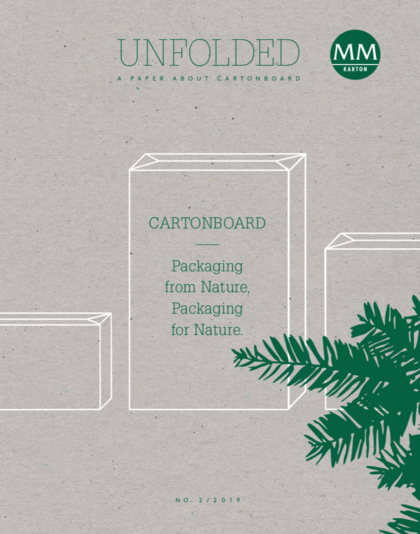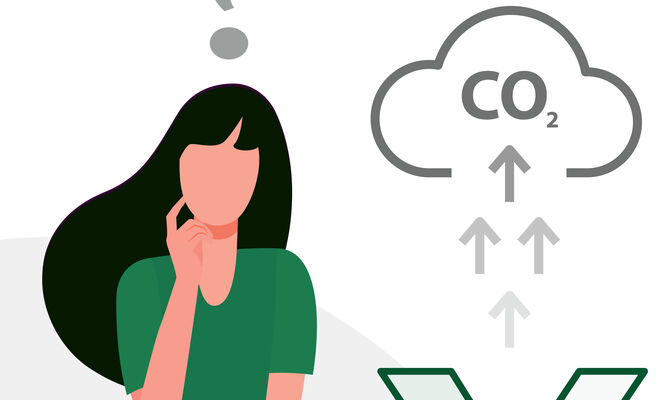Sustainability in packaging production
10.10.2019 - Sustainability, Cartonboard Know-How
In order to ensure that cartonboard, as a natural packaging material, is also sustainable, the cartonboard industry is constantly striving to optimise its use of materials (cartonboard, printing ink, glue) and transport routes.
Optimised design
As much as required, but as little as possible – when it comes to cartonboard production, the focus is on the material usage and its optimisation. Packaging sizes adapted to the product save on both materials and space. This is not only economically efficient, but also a good decision for the environment. When making cartonboard, millimetre precision is important to ensure that no more cartonboard is used than necessary.
The design and printing are also taken into consideration in order to make sure that the packaging will be completely recyclable at the end of its cartonboard lifecycle. Features such as UV or PE coatings can disrupt the circularity process. New guidelines support a circular approach to product design.
Optimised inks, finishing materials and glues
In addition to the optimisation of the design, consideration is also given to the number of inks used, the finishing techniques and the glues, in order to achieve the greatest possible efficiency. Only low-migration inks and coatings are used for food packaging, and these must comply with all the corresponding legal requirements. In Europe, for example, these are EU regulations no. 1935/2004 and no. 2023/2006 that covers this. Food contact inks and mineral oil-free inks are also used for other packaging, as recommended by the European Printing Ink Association (EuPIA), as these are more environmentally friendly in the recycling loop and beyond.
Optimised transport routes
Thinking globally, processing regionally – short transport routes reduce transport emissions and thus contribute towards protecting the environment. Keeping things local applies to both the delivery of the finished folding boxes to customers and to the delivery of the cartonboard material for processing in the first place.
The strategic location of our seven MMK cartonboard mills in continental Europe ensures that transport routes are kept as short as possible, while also allowing for a flexible delivery service. This results in particularly high sustainability.



